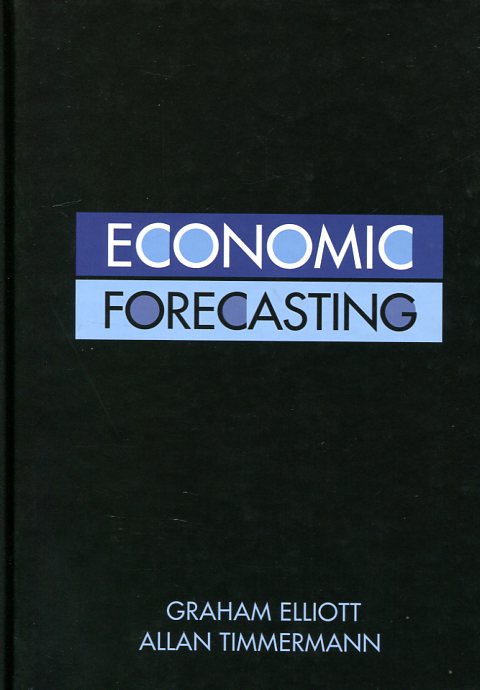Economic forecasting
- ISBN: 9780691140131
- Editorial: Princeton University Press
- Fecha de la edición: 2016
- Lugar de la edición: New Jersey. Estados Unidos de Norteamérica
- Encuadernación: Cartoné
- Medidas: 23 cm
- Nº Pág.: 543
- Idiomas: Inglés

Economic forecasting involves choosing simple yet robust models to best approximate highly complex and evolving data-generating processes. This poses unique challenges for researchers in a host of practical forecasting situations, from forecasting budget deficits and assessing financial risk to predicting inflation and stock market returns. Economic Forecasting presents a comprehensive, unified approach to assessing the costs and benefits of different methods currently available to forecasters.
This text approaches forecasting problems from the perspective of decision theory and estimation, and demonstrates the profound implications of this approach for how we understand variable selection, estimation, and combination methods for forecasting models, and how we evaluate the resulting forecasts. Both Bayesian and non-Bayesian methods are covered in depth, as are a range of cutting-edge techniques for producing point, interval, and density forecasts. The book features detailed presentations and empirical examples of a range of forecasting methods and shows how to generate forecasts in the presence of large-dimensional sets of predictor variables. The authors pay special attention to how estimation error, model uncertainty, and model instability affect forecasting performance.
Presents a comprehensive and integrated approach to assessing the strengths and weaknesses of different forecasting methods
Approaches forecasting from a decision theoretic and estimation perspective
Covers Bayesian modeling, including methods for generating density forecasts
Discusses model selection methods as well as forecast combinations
Covers a large range of nonlinear prediction models, including regime switching models, threshold autoregressions, and models with time-varying volatility
Features numerous empirical examples
Examines the latest advances in forecast evaluation
Essential for practitioners and students alike






